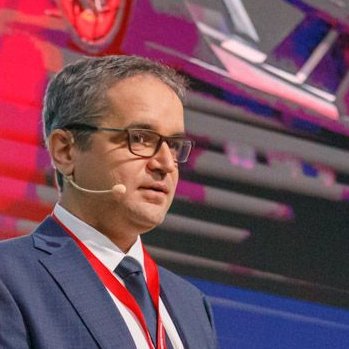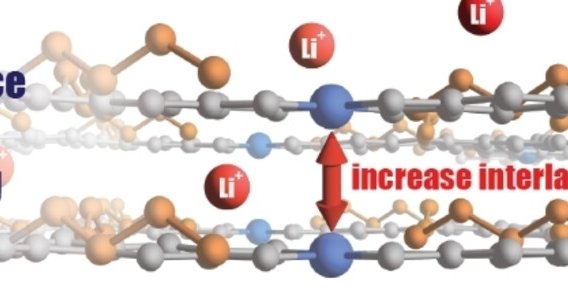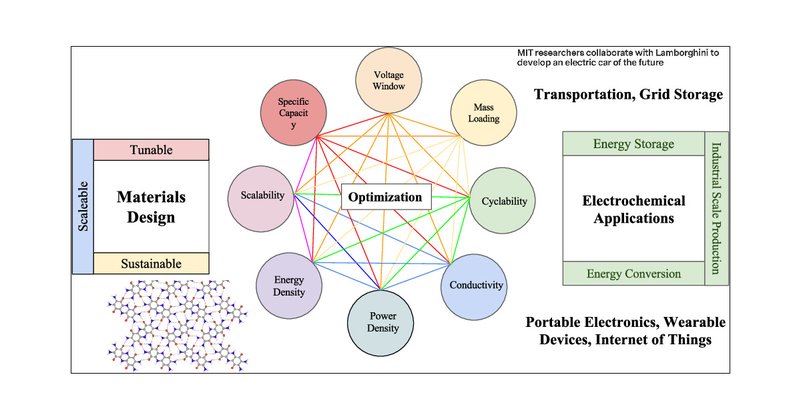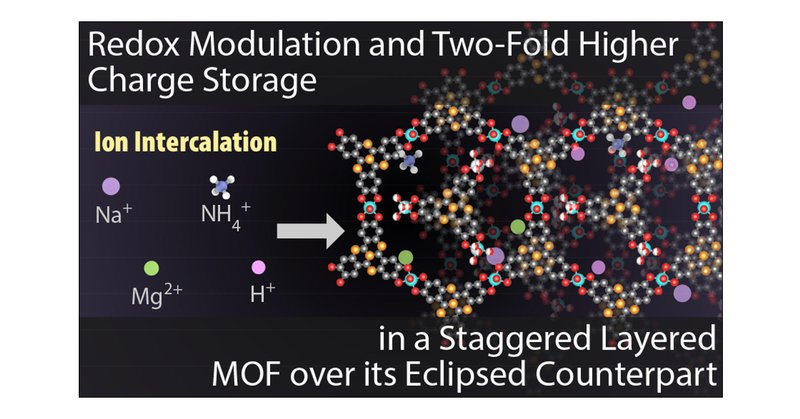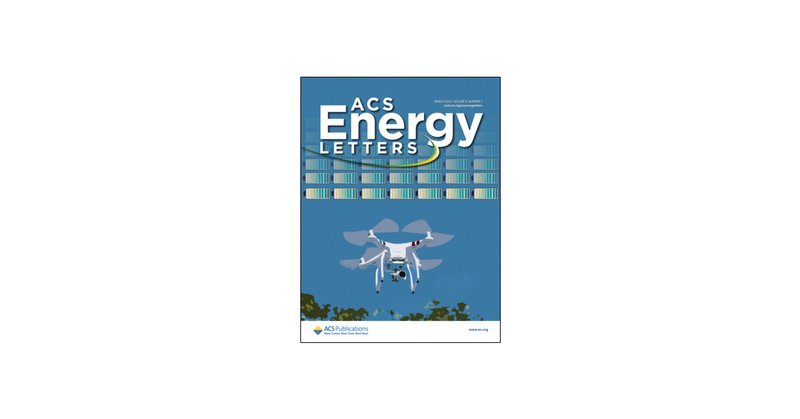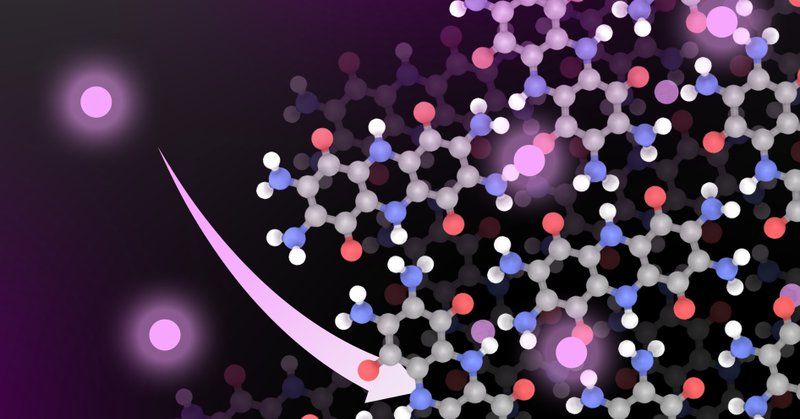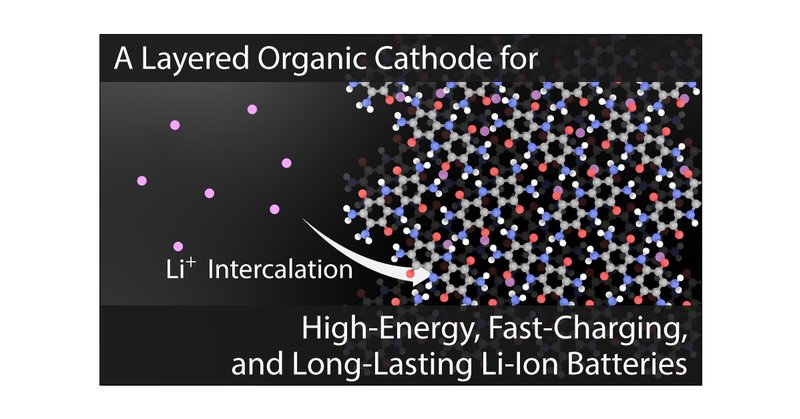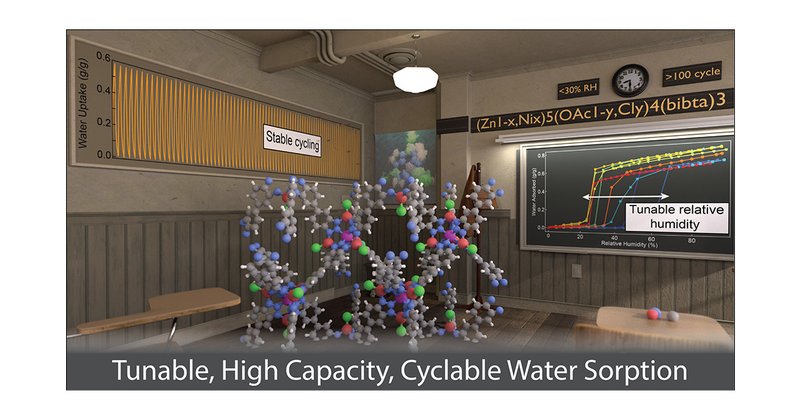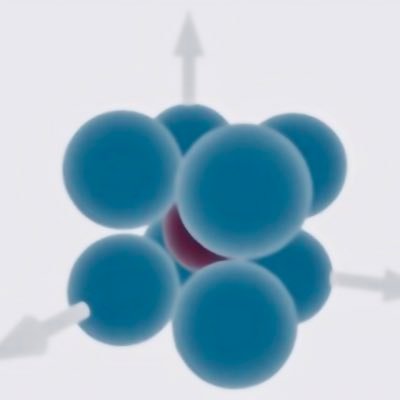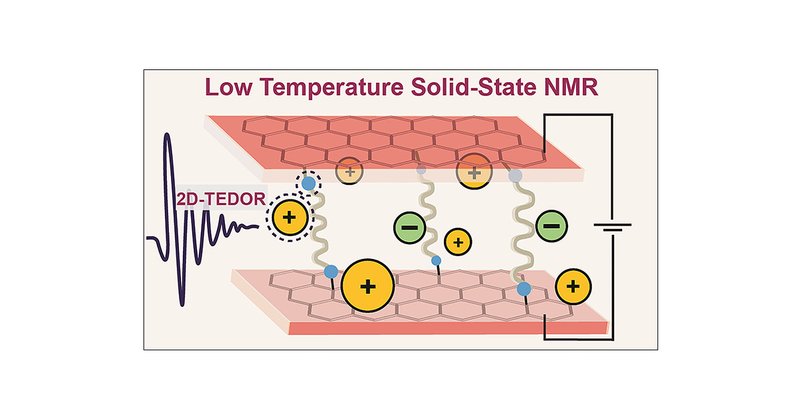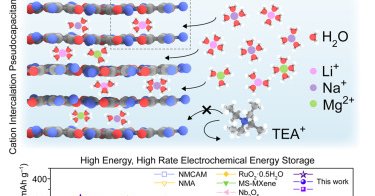
Harish Banda
@HarishBanda3
Followers
126
Following
93
Media
0
Statuses
25
Assistant Professor of Chemistry at UT, El Paso. Conducts experimental research on materials for energy storage
University of Texas, El Paso
Joined February 2021
We discovered dissolution as a general & primary degradation path (~80%) for 2D MOFs in energy storage devices. Arresting it enables 100k+cycle/1500+h stable performances. Caution on using Swagelok cells with lots of electrolyte! @TianyangChen7 @JinhuDou
https://t.co/AAOO4ghscy
0
2
17
Beggining to peel away at what makes MOFs better supercaps: distancing the layers with alkyl groups helps! Now out in @angew_chem from Alice Su and collaborators in the Vlad group at UC Louvain:
onlinelibrary.wiley.com
Faradaic contributions to charge storage increase as interlayer spacing widens in a series of Ni3(HIR3-TAT)2 (R=H, Et, n-Bu, n-Pent) 2D conductive MOFs, as the charge storage mechanism shifts to...
2
7
97
Thrilled to see this nice commentary article "Opening the Door to New Design Rules for Rechargeable Battery Materials" https://t.co/8qURs0BwYl from the Prieto lab on my recent work with @HarishBanda3 that we conducted at @DincaGroupMIT
pubs.acs.org
A metal-free organic cathode material is described that has high energy storage capacity, can be charged quickly, and has excellent cycle life.
0
1
15
Delighted to share the first article from my research lab at @UTEP published today in @ACSEnergyLett . We report on diverse intercalation of ions & a unique redox enhancement in Non-Porous 2D MOFs. Kudos to @TianyangChen7 @JinhuDou
https://t.co/1va5UomRRa
pubs.acs.org
Two-dimensional metal organic frameworks (2D MOFs) with honeycomb-like porous sheets are of growing interest for applications in electrochemical energy storage and electrocatalysis. Notably, 2D MOFs...
2
2
21
Free to Read Viewpoint Collection: An important Resource for new researchers working in the area of Electrocatalysis Tutorials in Electrochemistry: Electrocatalysis | ACS Energy Letters
pubs.acs.org
0
32
87
Check out our paper on the Electrochemical Synthesis of Sound in @ACSCentSci! We make sound from the motion of ions at the electrochemical interface, thereby gaining intuitive insight into dynamics occurring at the interface!
pubs.acs.org
Electrochemical double layers (EDLs) govern the operation of batteries, fuel cells, electrochemical sensors, and electrolyzers. However, their invisible nature makes their properties and function...
3
16
108
Chemists have developed a battery cathode based on organic materials, which could cut the EV industry’s reliance on scarce metals with high financial, environmental, and social costs. “I think this material could have a big impact,” says Mircea Dincă. https://t.co/HSJPy3vQ51
31
70
176
@ACSCentSci @Lamborghini @TianyangChen7 @HarishBanda3 @Jules_Oppenheim and the MIT News front page on this!
news.mit.edu
An MIT battery material could offer a more sustainable way to power electric cars. The lithium-ion battery includes a cathode based on organic materials, instead of cobalt or nickel.
1
5
34
Here's to a battery that doesn't need cobalt, nickel, or phosphate, stores just as much energy, and is probably longer-lived and safer! Open access in @ACSCentSci and funded by @Lamborghini Fantastic work by @TianyangChen7 @HarishBanda3 @Jules_Oppenheim
pubs.acs.org
Eliminating the use of critical metals in cathode materials can accelerate global adoption of rechargeable lithium-ion batteries. Organic cathode materials, derived entirely from earth-abundant...
5
18
181
Glad to see this work get published. Organic materials truly hold the key to sustainable batteries! Congratulations @TianyangChen7 @DincaGroupMIT
To make batteries more sustainable and to reduce costs, carmakers are trying new strategies. Now, researchers report an organic cathode material with performance that matches state-of-the-art lithium-ion cathodes: https://t.co/u9YLNI8i7J
0
5
15
Thrilled to see C&EN highlighted my PhD work with @HarishBanda3 in @DincaGroupMIT , where we utilize a semiconducting and highly insoluble organic molecular material for cathode of Li-ion batteries. Really competitive metrics at the electrode level are achieved!
To make batteries more sustainable and to reduce costs, carmakers are trying new strategies. Now, researchers report an organic cathode material with performance that matches state-of-the-art lithium-ion cathodes: https://t.co/u9YLNI8i7J
1
5
57
Excited to report what should be a scalable, low-humidity water sorbent with high, tunable capacity. It was a pleasure hosting @DalalAlezi for a year under @ibkfellowship! @Jules_Oppenheim @J_A_C_S
pubs.acs.org
Materials capable of selectively adsorbing or releasing water can enable valuable applications ranging from efficient humidity and temperature control to the direct atmospheric capture of potable...
1
10
134
Excited to see our work in the front cover of @J_A_C_S ! Led by our postdoc, Dr. Dmitri Cordova, we found ways to synthetically control and direct the crystallization of quasi-1D van der Waals nanocrystals into optically-active nanowires and nanosheets.
The latest issue of JACS is live! On the cover this week, the authors report the directed crystallization of a model q-1D vdW phase, Sb2S3, into dimensionally resolved nanostructures. @MaxxSolidChem Learn more here ➡️ https://t.co/8b2iXhlYmI
1
8
46
Organic cathode materials have been questioned for a long time about their practicability due to low conductivity (thus need a lot of carbon in the electrode) and dissolution during cycling. Our cathode overcomes these limitations and can complete with commercial cathodes.
Game-changing organic Li-ion cathodes that compete with commercial inorganic cathodes in all relevant metrics: https://t.co/Zhg8yHRCkq High power, long-lasting, and should be safer too! Thanks @Lamborghini for supporting us! @TianyangChen7 @HarishBanda3 @Jules_Oppenheim
3
1
36
Competent organic cathodes can truly revolutionize Li-ion batteries and catalyze global transition to renewables. Super excited for the possibilities this work opens up. https://t.co/HWsU0L6qqU Thanks @Lamborghini Cheers @DincaGroupMIT @TianyangChen7 @Jules_Oppenheim
Game-changing organic Li-ion cathodes that compete with commercial inorganic cathodes in all relevant metrics: https://t.co/Zhg8yHRCkq High power, long-lasting, and should be safer too! Thanks @Lamborghini for supporting us! @TianyangChen7 @HarishBanda3 @Jules_Oppenheim
0
1
10
Game-changing organic Li-ion cathodes that compete with commercial inorganic cathodes in all relevant metrics: https://t.co/Zhg8yHRCkq High power, long-lasting, and should be safer too! Thanks @Lamborghini for supporting us! @TianyangChen7 @HarishBanda3 @Jules_Oppenheim
4
13
114
Our work on probing ion-sorption mechanisms using Low-temp ssNMR is out in https://t.co/E3HjYDTjXp Working with @PhysChemDan was a pleasure!
pubs.acs.org
There is an ever-growing desire to use and store energy from sustainable resources. Pillared graphene materials offer high capacitive performances in supercapacitors, presumably through enhanced...
0
2
19
Super proud of this one, with lead co-authors @TianyangChen7 & @HarishBanda3 . Extremely fast charging and high capacity #EnergyStorage organic materials in water. Opens a big new chapter in our research and features our first co-author from @Lamborghini
cell.com
Shortening the charging time for electrochemical energy storage devices, while maintaining their storage capacities, is a major scientific and technological challenge in broader market adoption of...
19
15
170
Energy storage can be fast AND high in capacities. An organic molecule packs and acts like a 2D material, enabling exceptional properties. More results, and more possibilities, beyond aqueous systems are on the way. Working with @TianyangChen7 was a delight!!
Super proud of this one, with lead co-authors @TianyangChen7 & @HarishBanda3 . Extremely fast charging and high capacity #EnergyStorage organic materials in water. Opens a big new chapter in our research and features our first co-author from @Lamborghini
1
1
6
